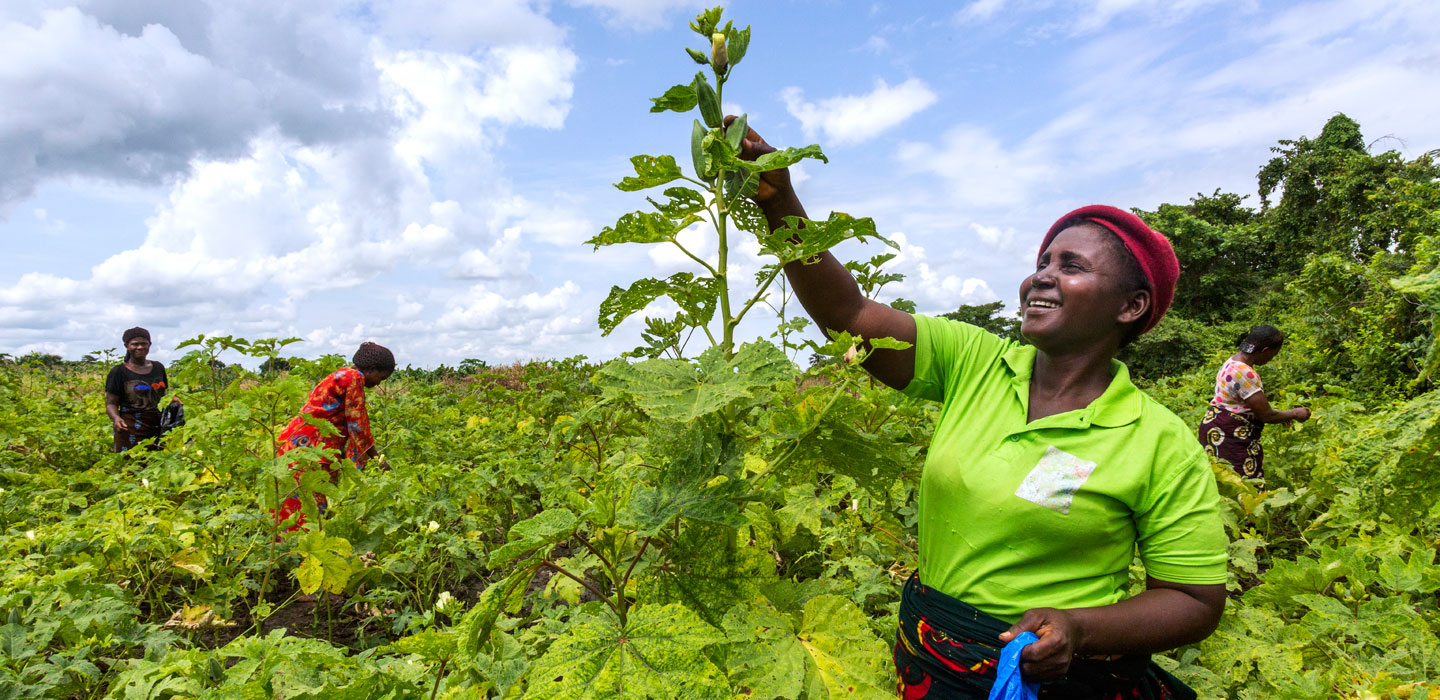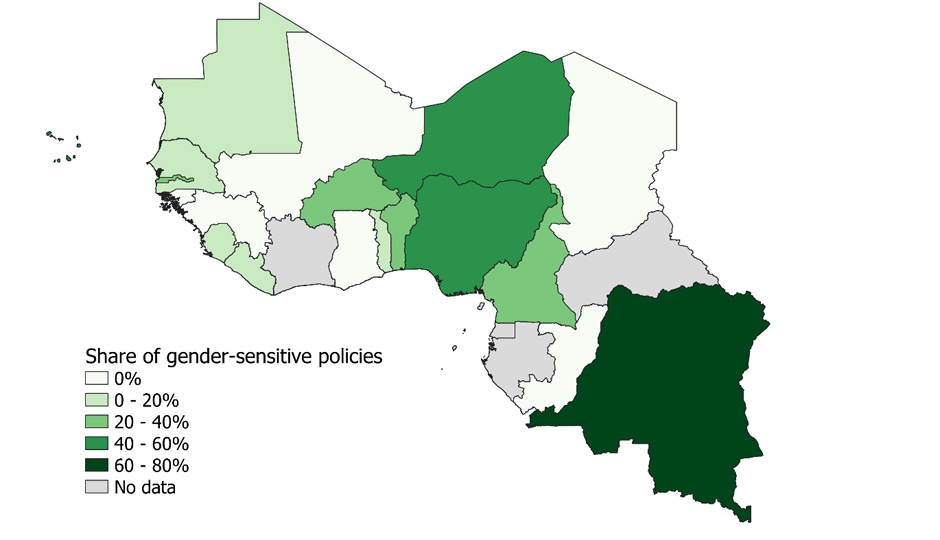Promoting women’s economic empowerment in West and Central Africa
IFAD Asset Request Portlet
Asset Publisher
Promoting women’s economic empowerment in West and Central Africa
Estimated reading time: 4 minutes
A growing number of reports are demonstrating what many development professionals already know about the impacts of COVID-19: women and girls are more vulnerable to the negative health and socio-economic effects of the crisis. Research suggests COVID-19 brings an increased risk of violence against women and girls, reduced economic security for women, and an increase in the burden of unpaid care work.
Women in West and Central Africa are especially at risk because they already tend to suffer from low well-being, a reflection of low health, economic, and human capital indicators. Although many countries in the region have seen some of the greatest advances in women’s economic participation and opportunity in the last 15 years, according to the World Economic Forum’s Global Gender Gap Report, COVID-19 threatens a setback. Policy responses to the crisis can help offset many of these disparate impacts, but only if they account for the additional barriers women face.
The COVID-19 Global Gender Response Tracker from UNDP and UN Women demonstrates how governments worldwide are responding to the crisis with policy measures. The tracker sorts policies into four broad categories, according to what they address: social protections, the labour market, fiscal and economic parity, and violence against women. Although many countries have made great strides in terms of gender-inclusive COVID relief policies, the tracker reveals that, unfortunately, not all policy responses are gender-sensitive.
The Democratic Republic of the Congo, for example, has incorporated the greatest percentage of gender-sensitive policies as a share of all new COVID-19 measures, while Côte d’Ivoire and Nigeria have incorporated the greatest absolute number – each boasting 10 new policy measures aiming to protect and empower women throughout the crisis.

| Share of COVID-19 response policies that are gender-sensitive. Most countries in West and Central Africa have adopted health and economic measures in response to COVID-19, but not all of these measures are gender-sensitive. Source: Women’s Vulnerability Dashboard. |
Individual policy measures in many countries have done an excellent job of addressing gender inequalities. Nevertheless, rural women continue to be at risk of experiencing food insecurity and malnutrition, lower engagement in economic activities, and increased gender-based violence.
As the leading rural finance institution in developing countries, IFAD is working directly to counteract the disproportionate health and socio-economic impacts of COVID-19 on rural women and ensure resources are going to the most vulnerable populations. Guided by its Policy on Gender Equality and Women’s Empowerment, IFAD aims to promote women’s economic empowerment by emphasizing the inclusion of women in its programme activities, supporting efforts to reduce women’s labour burden, and encouraging equitable chances for women’s voices to be heard in decision-making and leadership.
Three countries identified by Data2X as having low women's well-being are hosting ongoing projects funded by IFAD that feature gender-transformative approaches. These are projects with interventions that:
- create opportunities to challenge and change gender norms
- promote positions of social and political influence for women
- address the power inequities between women and men.
Such projects have the potential to bring economic empowerment, equal voice, and more equitably shared workloads to rural women in West and Central Africa.
PRAPAM – Central African Republic
PRAPAM will implement the innovative Gender Action Learning System (GALS), IFAD's most widely used household methodology, which promotes gender-transformative change within families and aims to improve intra-household gender relations. The GALS methodology links directly with PRAPAM project objectives, which include advancing women’s economic empowerment, improving women's well-being by alleviating their workloads, and reinforcing women’s participation in decision-making. As a gender-transformative project, PRAPAM is putting a special emphasis on women who "would suffer a higher burden due to increased workload from household chores, loss of household help, school closures, and higher nursing workload" as a result of the pandemic.
PRECIS – Niger
PRECIS is incorporating a highly gender-sensitive and inclusive targeting strategy to ensure women are participating in key project activities – namely, those focused on technical capacity-building, and entrepreneurship, leadership. Notably, the project will seek to attenuate socio-cultural barriers that make it difficult for women to access land and financing. Even as COVID-19 is threatening to derail much of the growth achieved in recent years, PRECIS may help ensure women's empowerment will not be left out of the response and recovery efforts.
MERIT – Mali
Despite Mali's strong centralized COVID-19 response, none of its economic or health measures directly target women. MERIT may help remedy this. The project directly addresses women's vulnerabilities by providing households with solar power kits and improved stoves, giving women, in particular, more time for other productive activities. The greater availability of energy for cooking is also expected to have a positive effect on women and children’s nutrition, thanks to an increase in the number of hot meals.
IFAD’s Twelfth Replenishment promises to further enhance women’s empowerment. By aiming to make 35 per cent of its projects gender-transformative in the upcoming cycle, IFAD will continue to consolidate its efforts to promote the empowerment of rural women and address the root causes of inequalities. Efforts like these will ensure West and Central Africa, among other regions, is on track to meet the Sustainable Development Goals. By ensuring the equal participation of rural women in productive activities, IFAD is contributing to strengthening women’s resilience and ability to recover from future shocks.
Publication date: 05 March 2021